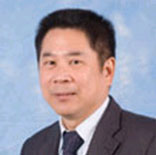学术报告: A Machine Learning Approach to Visual Information Processing
发布时间:2012-07-16
发布时间:2012-07-16
主讲人: Professor C.-C. Jay Kuo University of Southern California
地点: 北京大学 计算机所大楼 106报告厅(中关村北大街128号)
报告1: A Machine Learning Approach to Visual Information Processing
时间: 2012年7月19日(周四)下午14:00—15:30
Abstract: Machine learning has a long history, including techniques developed in the context of pattern recognition, neural nets, fuzzy logic, etc. It has blossomed in the last decade. There are two key ingredients for the success of the machine learning approach: 1) a sufficient amount of training data and 2) an efficient learning mechanism. Since this methodology heavily relies on training data, it is also called the data-driven approach. Due to the availability of a large amount of speech corpses and text data, we have witnessed a great progress in speech understanding and text data mining & search based on machine learning in recent years. There are quite a few image and video files available over the Internet nowadays, and they continue to grow in an amazing rate. Will we observe the same success in “data-driven visual information processing” in the coming decade? The future appears to be bright. In this talk, after a brief introduction, I will use two examples to explain the data-driven visual information processing methodology; namely, image retrieval based on relevance feedback and perceptual visual quality assessment. Then, I will point out three major research problems in the near future: 1) information representation, 2) pedagogical development, and 3) context decision.
报告2: 3D Video Technologies: Recent Developments and Future Directions
时间: 2012年7月19日(周四)下午15:30—17:00
Abstract: 3D video has a very long history of about 40 years, yet its practical impact has become more obvious in recent years. Applications such as 3D movies, 3DTV and depth-based game consoles have attracted a lot of attention. There are quite a few emerging research topics in 3D video technologies. In the first half of the talk, I will give a high-level overview on 3D video technologies, including 2D-to-3D video conversion, 3D video coding, 3D visual quality assessment and depth-assisted intelligent video. Then, in the second half of the talk, I will focus on the depth-assistant intelligent video. Intelligent video, including video understanding, indexing and retrieval, is a very challenging computer vision problem. When a scene is captured by a single camera, the 3D world space is projected to a 2D image space. A significant amount of information is lost during the projection process. There is a recent trend to put more emphasis on acquiring the depth information so as to simplify the video processing and understanding tasks. The depth information can be obtained by a depth camera, a stereo camera or some depth-inference algorithms. I will elaborate on the usefulness of the depth information in several video analysis problems and point out future research opportunities and challenges.

Biography of Dr. C.-C. Jay Kuo
Dr. C.-C. Jay Kuo received the Ph.D. degree from the Massachusetts Institute of Technology in 1987. He is now with the University of Southern California (USC) as Director of Signal and Image Processing Institute and Professor of EE, CS and Mathematics. His research interests are in the areas of digital media processing, multimedia compression, communication and networking technologies, and embedded multimedia system design. Dr. Kuo is a Fellow of IEEE and SPIE. Dr. Kuo has guided about 115 students to their Ph.D. degrees and supervised 23 postdoctoral research fellows. Currently, his research group at USC consists of around 30 Ph.D. students (see website http://viola.usc.edu), which is one of the largest academic research groups in multimedia technologies. He is a co-author of about 200 journal papers, 830 conference papers and 10 books. Dr. Kuo is a Fellow of AAAS, IEEE and SPIE. He is Editor-in-Chief for the IEEE Transactions on Information Forensics and Security and Editor Emeritus for the Journal of Visual Communication and Image Representation (an Elsevier journal). He was Editor-in-Chief for the Journal of Visual Communication and Image Representation in 1997-2011. He was on the Editorial Board of the IEEE Signal Processing Magazine in 2003-2004, IEEE Transactions on Speech and Audio Processing in 2001-2003, IEEE Transactions on Image Processing in 1995-98 and IEEE Transactions on Circuits and Systems for Video Technology in 1995-1997.
Dr. Kuo received the National Science Foundation Young Investigator Award (NYI) and Presidential Faculty Fellow (PFF) Award in 1992 and 1993, respectively. He was an IEEE Signal Processing Society Distinguished Lecturer in 2006, a recipient of the Okawa Foundation Research Award in 2007, the recipient of the Electronic Imaging Scientist of the Year Award in 2010, the holder of the Fulbright-Nokia Distinguished Chair in Information and Communications Technologies from 2010-2011, and a recipient of the Pan Wen-Yuan Outstanding Research Award in 2011.
上一篇 下一篇
